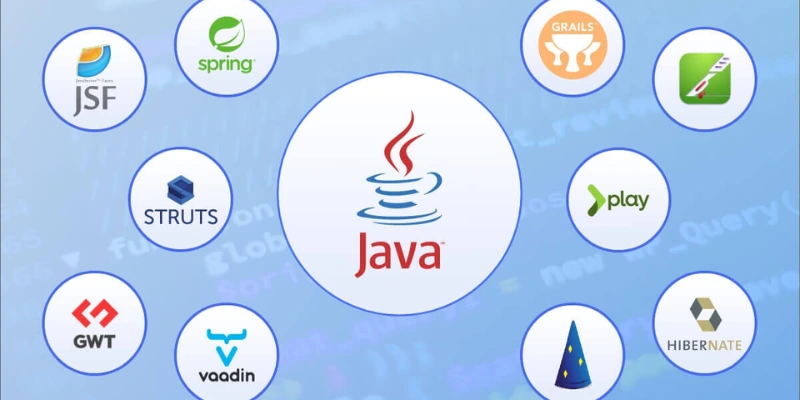
Modern application development relies heavily on frameworks to simplify coding, boost efficiency, and ensure maintainability. Whether you’re building microservices or enterprise apps, having the right tools in your development stack makes all the difference. For those seeking a strong foundation in professional coding practices, Java Training in Trivandrum offers a guided learning path into key frameworks shaping modern Java development.
1. Spring Boot
Spring Boot is arguably a most popular Java framework today. It simplifies the development of stand-alone, production-grade applications with minimal configuration. Developers appreciate its embedded servers, opinionated defaults, and ability to build microservices quickly.
Key features include:
- Auto-configuration
- Embedded Tomcat server
- Easy integration with Spring ecosystem
Spring Boot reduces boilerplate code and offers fast development cycles, making it ideal for startups and enterprise applications alike.
2. Hibernate
Hibernate is a powerful Object-Relational Mapping (ORM) framework that simplifies database operations in Java. Instead of writing complex SQL queries, developers use Hibernate to interact with the database through Java objects.
Why Hibernate stands out:
- Maps Java classes to database tables
- Handles CRUD operations automatically
- Reduces boilerplate code for transactions
Learning Hibernate is essential if you’re dealing with persistent data, especially in large-scale systems where clean database interaction is a must.
3. Quarkus
Quarkus is a modern, cloud-native Java framework tailored for containerized and serverless environments. Its fast startup time and minimal memory usage make it the go-to choice for developers building scalable microservices.
What makes Quarkus powerful:
- Native compilation support (GraalVM)
- Built-in support for reactive programming
- Developer-friendly live coding feature
If you’re aiming to build fast, responsive cloud applications, mastering frameworks like Quarkus through Java Course in Mumbai ensures you’re equipped with the right skills to tackle enterprise-scale challenges.
4. Jakarta EE (formerly Java EE)
Jakarta EE is the evolution of Java EE, the long-standing standard for enterprise Java applications. It includes APIs for building web apps, RESTful services, messaging, and more.
Core features include:
- Support for Servlets, JSP, and JSF
- Dependency Injection (CDI)
- Standardized persistence and web services APIs
Jakarta EE remains relevant for developers working in enterprise IT environments where stability and backward compatibility are critical.
5. Micronaut
Micronaut is a contemporary JVM-based framework designed for creating serverless and modular microservice applications that are simple to test. It provides fast startup times and low memory usage, much like Quarkus.
Key advantages:
- Dependency injection without reflection
- Built-in support for reactive HTTP servers
- Seamless integration with cloud tools
Micronaut is gaining popularity among developers working in high-performance, distributed system environments.
Learning the Right Java Frameworks
Choosing the right set of Java Frameworks depends on the nature of the project, your deployment environment, and long-term maintainability goals. Most modern development workflows incorporate more than one Spring Boot for the application layer, Hibernate for persistence, and Jakarta EE for robust backend services. Mastering these combinations becomes easier when you’re supported by expert-led instruction. For instance, Java Training in Ahmedabad helps learners go beyond documentation, offering real-world insight into how frameworks interact in complex systems.
Why Framework Knowledge Makes a Difference
Frameworks do more than just save time; they standardize development, reduce bugs, and support scalability. With the Java ecosystem evolving rapidly, developers who keep up with top frameworks are more likely to build efficient, secure, and future-proof applications. Through hands-on projects and collaborative learning, learners gain the practical exposure needed to apply these Java frameworks effectively in real-world scenarios especially when paired with a solid foundation that Explores the Java Virtual Machine (JVM) and how it manages execution, memory, and performance behind the scenes.
Embrace the Framework-Driven Future
To stay competitive in software development, learning the right Java Frameworks is essential. Whether it’s building reactive apps with Quarkus or maintaining legacy systems with Jakarta EE, each tool has its strengths. By joining a Java Course in Trichy, you can confidently step into the professional world equipped with the knowledge to use these technologies in meaningful, high-impact ways.
Also Check: How to Handle Exceptions in Java
